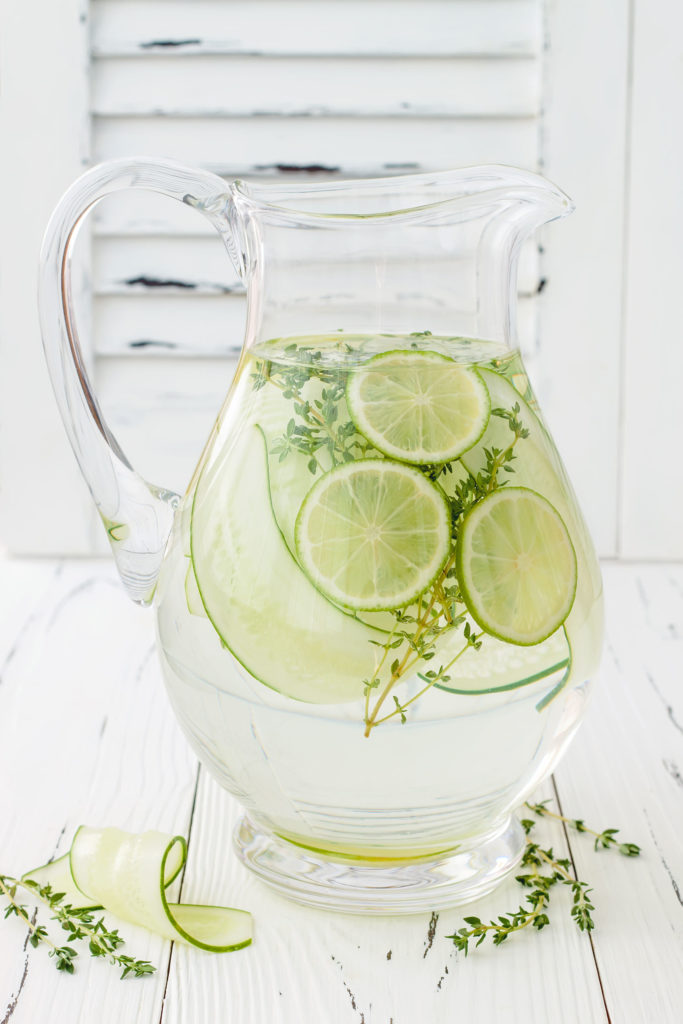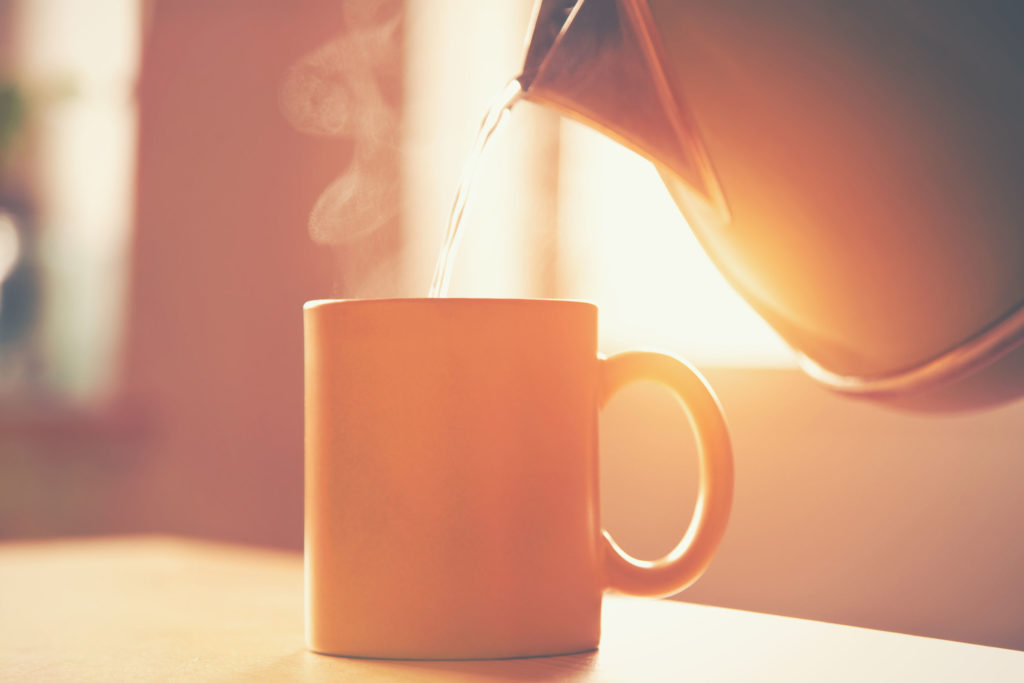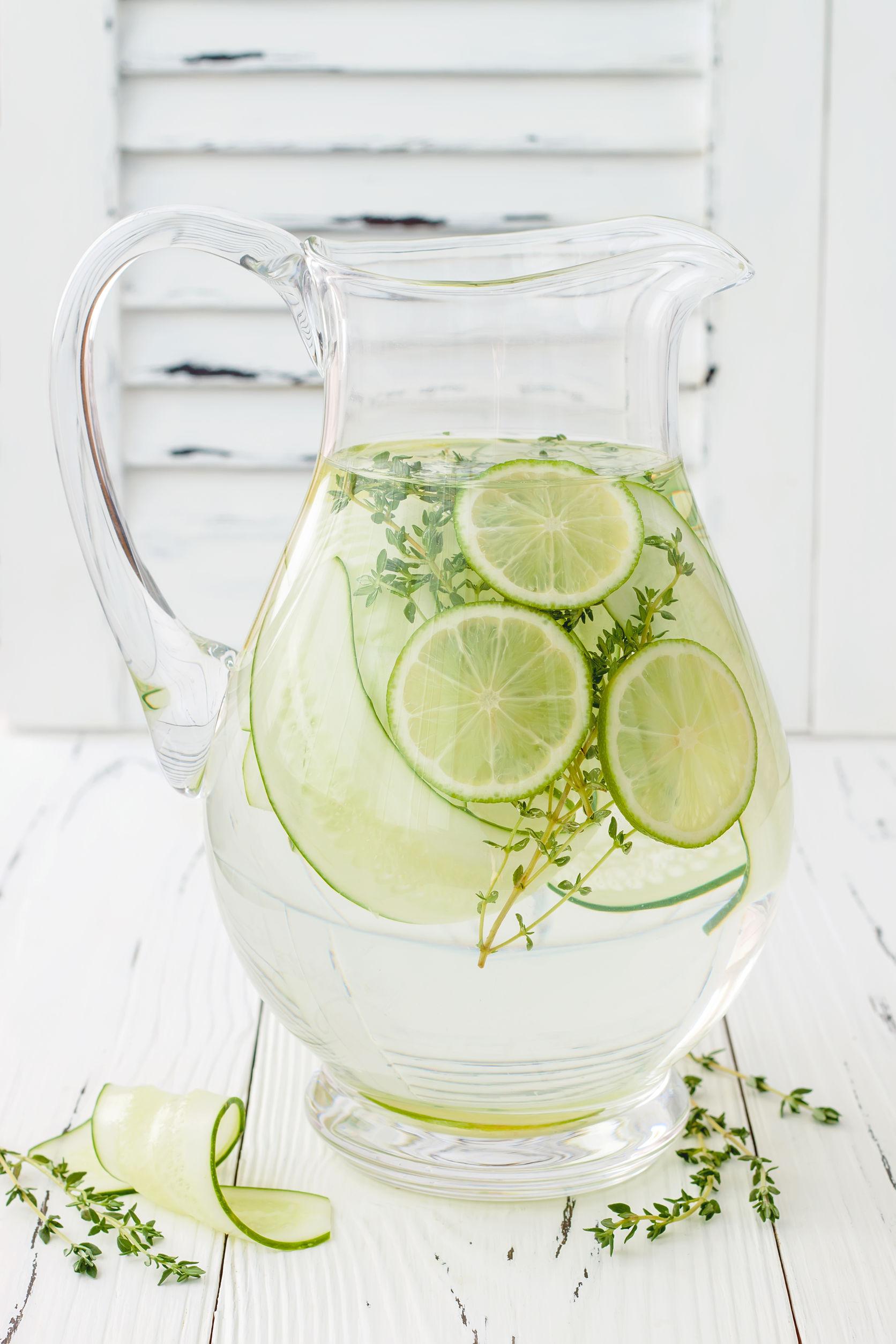
Did you know that an estimated 75% of U.S. adults are chronically dehydrated?! If that’s true, then most of you reading this post right now are dehydrated.
Hydration is so important to our bodily functions that although humans can live a month or more without food, we would only survive several days without water.
Benefits of Good Hydration
First, let’s look at all the reasons why hydration is important. Hydration is involved in a wide variety of physiological functions.
- Cellular Balance
- Detoxification
- Temperature Control
- Metabolism
- Physical Performance
- Cognitive Function
- Digestion
- Heart Function
- Skin Integrity
We can mostly maintain our hydration status if we listen to our thirst cues. The problem though is that we often don’t listen to these cues. We actually get pretty good at tuning them out or we confuse them with hunger cues and end up getting a snack when what we really needed was a glass of water.
Signs of Dehydration
Could you be one of the 75% dealing with chronic dehydration? You probably already have a good idea if you’re not drinking enough water but let’s look at some of the signs of dehydration.
- Headache
- Fatigue
- Irritability
- Weakness
- Salt or Sugar Cravings
- Dizziness
- Dry Mouth
- Nausea
- Dark Urine
- Constipation
Do any of those ring true for you? If so, you may be dealing with chronic dehydration.
The good part though is the remedy is quite simple – drink more fluids!!
I know this is sometimes easier said than done and I can’t tell you how many clients have said they don’t want to drink more because they will end up in the bathroom more. I know this can be annoying but the reality is if you’re not urinating at least once every 2 hours, you are dehydrated!
I also hear the complaint that they don’t like the taste of plain water. If that’s true for you then you’ll be happy to know that there are a good variety of fluids that will all count towards your hydration for the day. So let’s get creative!
Fluid Goals
First, let’s assess how much water (or fluids) you actually need in a day. This varies a bit from person to person and of course your needs will increase with exercise, sweating, or in hot weather. But in general, most people need about half of their body weight in ounces.
Total Fluid Needs in ounces = ½ your body weight in pounds
Once you know your minimum amount for the day then you can get creative in how you meet that number.
I would suggest varying your beverages and spreading them out over the day so you’re not stuck with trying to get most of your fluids in at the end of the day, which could then interfere with sleeping.
Get a Variety
Here are some ideas of how to keep it interesting.
Spa Water – water with fresh fruit or herbs for flavor (lemon, lime, mint, cucumber, etc.)
Herbal Teas – ginger, fennel, mint, chamomile, licorice…..any that you like
Green Tea – Japanese green tea will offer you the most phytonutrient content; especially matcha.
Fresh Veggie Juices – keep it mostly to low glycemic veggies like greens
Broth – broth and liquid based soups can also be a great fluid source, especially in the winter
Other Tips

In the winter I would suggest keeping it to mostly warm fluids and in the summer, room temperature or cool fluids are best, not ice cold beverages. I know this can be hard.
Many people prefer ice in their drinks; especially on a hot day. The problem though with this is that ice cold water is actually not that great for you. Besides interfering with digestion it may interfere with immunity, exacerbate headaches and migraines, and even make breathing issues like asthma worse.
Iced drinks are particularly problematic with a meal as ice slows down digestion and will actually solidify fats making it even harder to break them down. This is challenging when pretty much every restaurant serves iced water with your meal. Don’t be afraid to ask for water without ice or even better a cup of warm water with a little lemon to actually aid digestion.
Other than green tea, caffeinated beverages (like coffee, black tea, soda) and alcoholic beverages are not counted towards your hydration needs for the day. The reason is that both caffeine and alcohol act as diuretics and cause you to lose more fluid over the day through increased urination. It doesn’t mean you have to avoid these fluids, just count them as “extras”.
The last suggestion is to keep the majority of your fluid intake away from your meals. Fluids dilute your digestive juices and can interfere with optimal digestion. Sips of water during a meal is fine but keep the bulk of your intake between meals. This will also help to increase your feeling of fullness, which will discourage snacking between meals.
Take Home Message
Hydration is such an integral part to health and a healthy metabolism that it is the very first thing I focus on with clients.
It’s surprising how many ailments and complaints can be fixed simply with better hydration. Who wouldn’t want to lose weight, look younger, and have more energy! Yep, hydration can influence all those things and more as we learned above.
Consider your own hydration status and if you suspect that you may not be drinking enough, make that your first task before tackling any other health goals.
